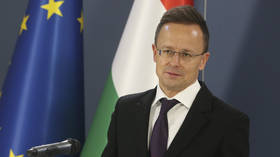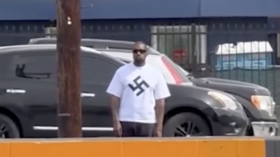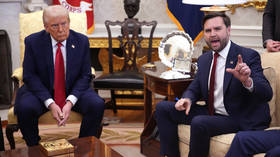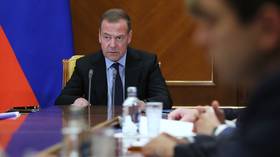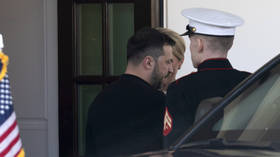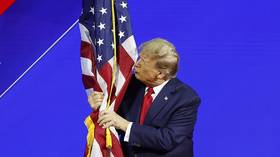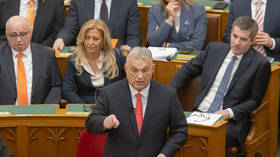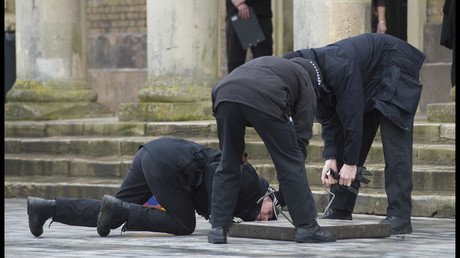‘Simply reality’: Public hits back at banning of ‘This is Nigeria’ music video
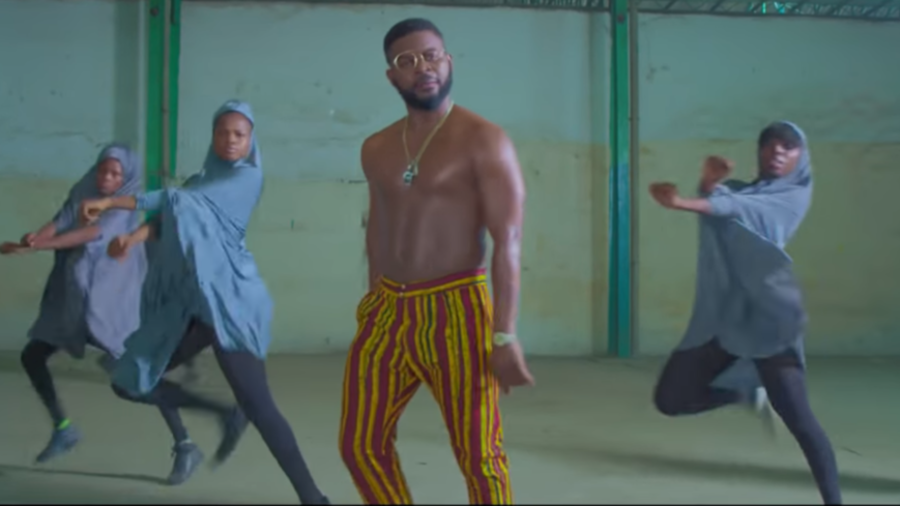
‘This is Nigeria,’ a rap music video portraying the country’s problems, has been banned following accusations that it contains a “vulgar” line. The public has hit back, saying the video merely states the truth.
Nigeria’s National Broadcasting Commission (NBC) fined a Nigerian radio station for airing rapper Falz’s adaptation of Children Gambino’s ‘This is America.’ The video has already racked up 13 million views on YouTube.
It gives a depressing portrayal of what life is like amid corruption and violence in the west African country. NBC banned the song from being aired, claiming the line “This is Nigeria, everybody be criminal” is too “vulgar” to be publicly broadcast.
The cover of Gambino’s hit piece went viral as it was picked up by hip-hop mogul Diddy.
Despite its popularity, NBC doubled down on its ban, saying the song is “unfit” to circulate.
It also received criticism from Nigeria’s Muslim Rights Concern, who in June threatened to sue Falz if he failed to issue an apology and redact the song.
The group said it “demonized Nigerian Muslims,” and raised concern about female dancers wearing hijabs, as well as a man from the Fulani tribe purportedly attacking another man with a machete.
The organization said Falz’s work was “thoughtless, insensitive and highly provocative,” and had “the potential of causing religious crisis of unprecedented dimension.”
Falz, whose real name is Folarin Falana, responded to the ban saying: “I’m not happy that the NBC is preventing the people from listening to such strong messages that need to be heard,” CNN reports.
“There is a lot going on that needs to be talked about, even though a lot of people may not want to hear the truth.”
The ban stirred outcry on social media, with people saying it does nothing more than portray the reality of the third-world country.
"This is Nigeria" by @falzthebahdguy shouldn't have been banned everything said in the song were simply the reality of the now in Nigeria, NBC you are wrong on this one. I join SERAP & other well meaning Nigerians to call for the lift of ban on the song #ThisIsNigeria@segalink.
— Emmanuel Iheme (@iheme_emmanuel) August 13, 2018
Just heard on radio that the National Broadcasting Commission has banned radio broadcast of a number of songs including @falzthebahdguy's "This is Nigeria". Where's our freedom of speech? @NGRPresident fix Nigeria's problems don't snuff out our voice! #ItIsTime!
— Kingsley Moghalu (@MoghaluKingsley) August 10, 2018
Falz used This Is Nigeria to address major issues going on in Nigeria and now the NBC has banned it.This country is one that hates the truth/ people that tell it. Instead of attempting to address the issues, the authorities try to suppress the message.
— Iseunife The First (@Shawnife_) August 9, 2018
If you like this story, share it with a friend!



